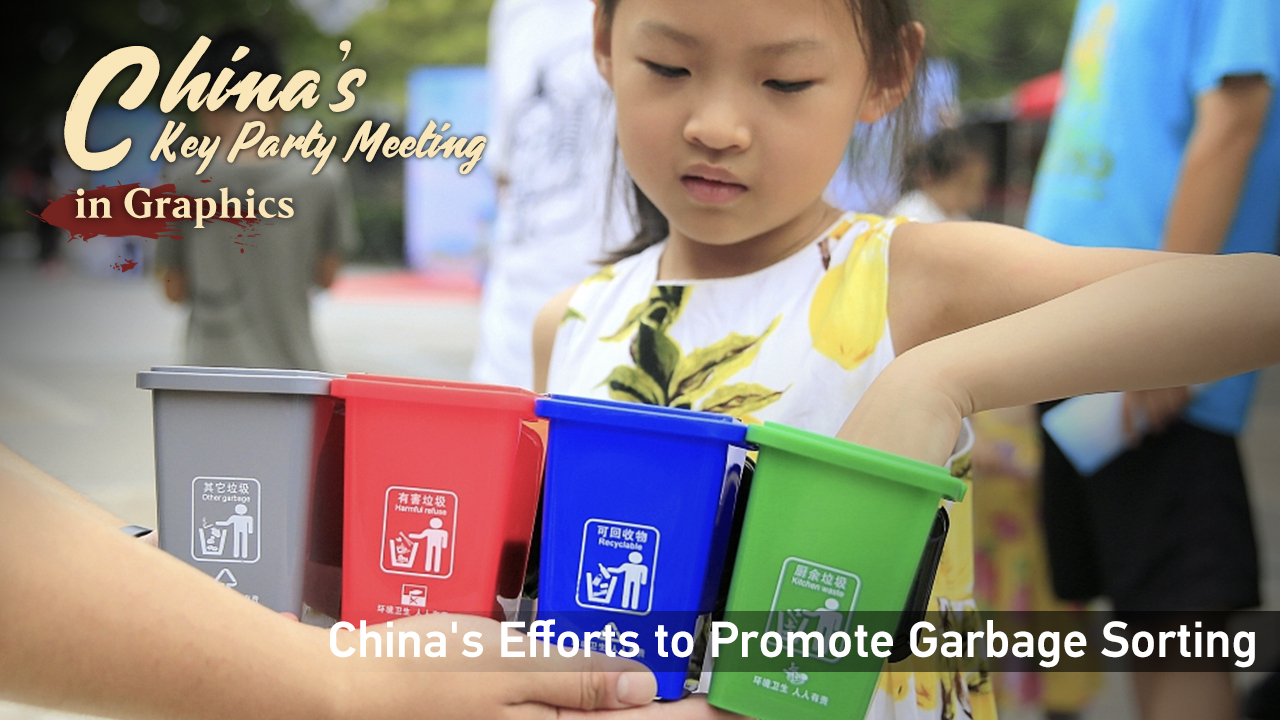
Having made several headlines and taken the internet by storm with a deluge of memes and clever quips, "garbage sorting," a word that seems to be on everyone's lips across China, is among the annual 10 picks of the most commonly used catchphrases by media in 2019, according to the full list unveiled by Chinese National Language Monitoring and Research Center on December 6.
As the country wages war on the mounting trash, with Shanghai ushering a new era of compulsory waste sorting in July and more cities to follow, garbage sorting is becoming more of a daily practice than an elusive concept or an eloquent slogan.
A decision taken at the fourth plenary session of the 19th Central Committee of the Communist Party of China (CPC) in late October has renewed the country's pledge to promote trash classification nationwide as part of the move to establish a mechanism for efficient utilization of resources and develop ecological civilization.
Ramping up domestic waste management for building a green circular economy, how does China manage to make the practice an established requirement rather than just a matter of choice? What is the basis of all these endeavors and what are the challenges that lie ahead?
Garbage sorting – no longer a matter of choice
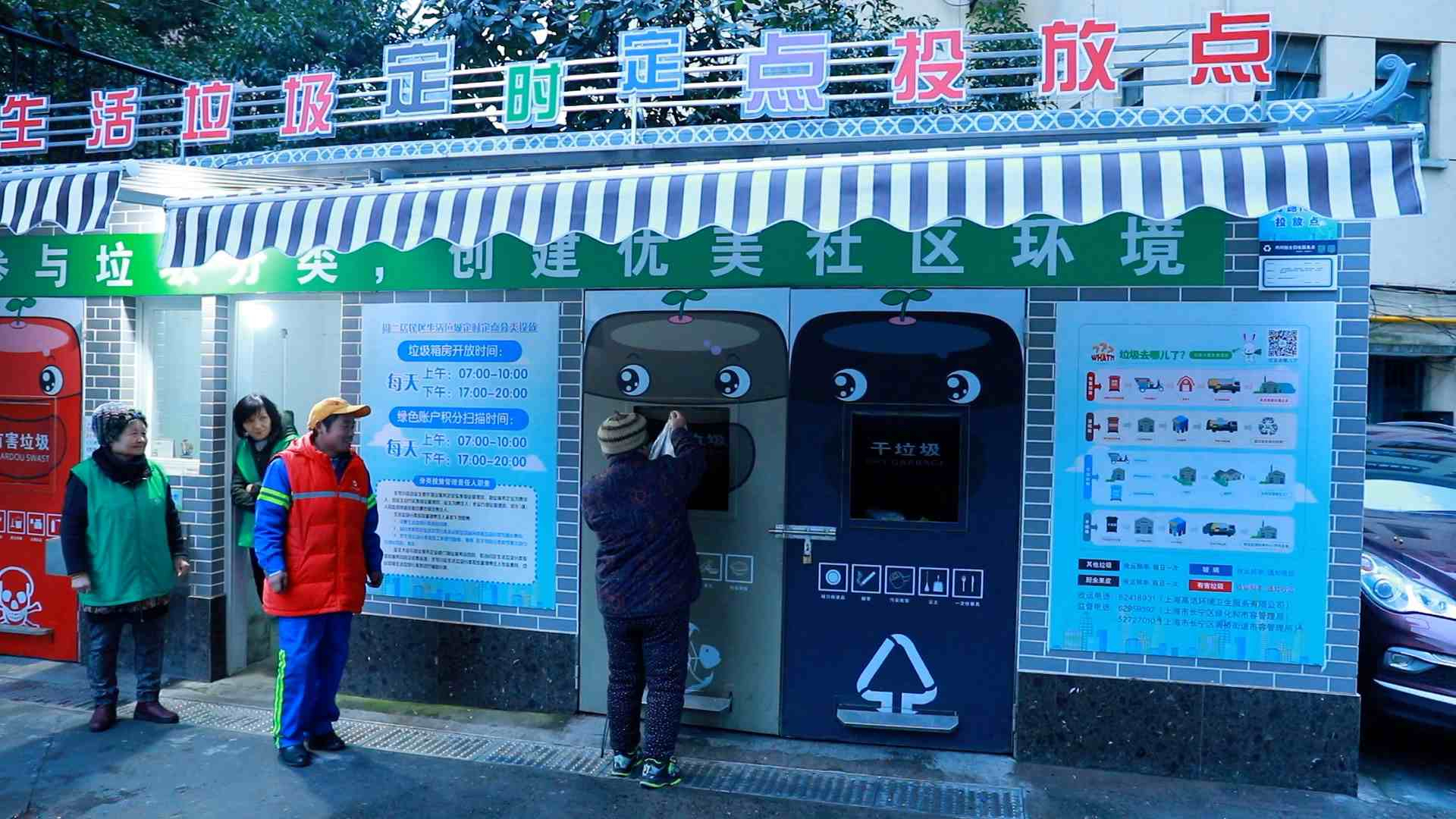
Volunteers help residents sort their trash in a Shanghai neighborhood. /CGTN Photo
Volunteers help residents sort their trash in a Shanghai neighborhood. /CGTN Photo
Starting July 1, over 24 million permanent residents of Shanghai are no longer able to dump their rubbish into whichever dustbin they find to be the closest. Instead, they are required to sort garbage into four separate bins at a designated time and place as a new set of regulations on household garbage sorting and recycling has come into force.
Per the rules, labelled "strictest ever in China's history," individuals who fail to classify waste properly and decline to rectify their mistakes can be fined up to 200 yuan (29 U.S. dollars) while businesses and institutions could face a penalty of up to 50,000 yuan (7,106 U.S. dollars).
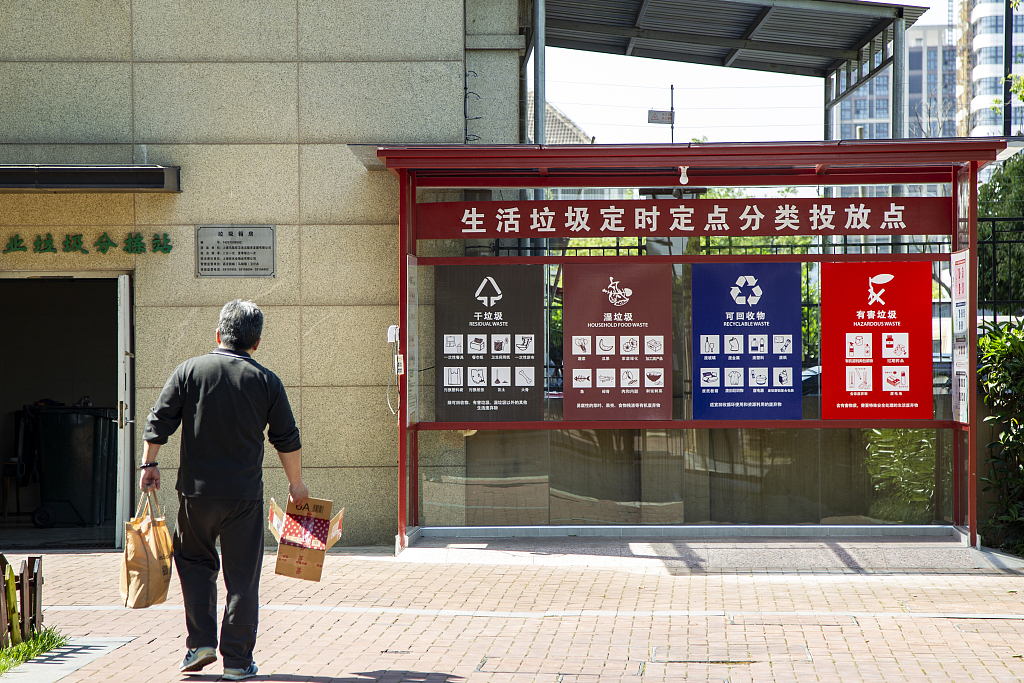
A site for trash sorting and collection in Shanghai, May 3, 2019. /VCG Photo
A site for trash sorting and collection in Shanghai, May 3, 2019. /VCG Photo
According to the city's urban management and law enforcement bureau, a total of 632 notices for rectification were issued to institutions and companies who failed to sort their garbage accurately on July 1, and altogether 190 tickets for fines were sent out in the first six days since the new household trash sorting mechanism took effect.
Shanghai has shown better-than-expected compliance with the new mechanism. By September, more than 5,600 tons of recyclable waste had been collected on a daily basis – five times more than the figure at the end of 2018. In addition, over 80 percent of 12,000 residential complexes are complying with the rules, up from 15 percent in late 2018, according to the city's Greenery and Public Sanitation Bureau.
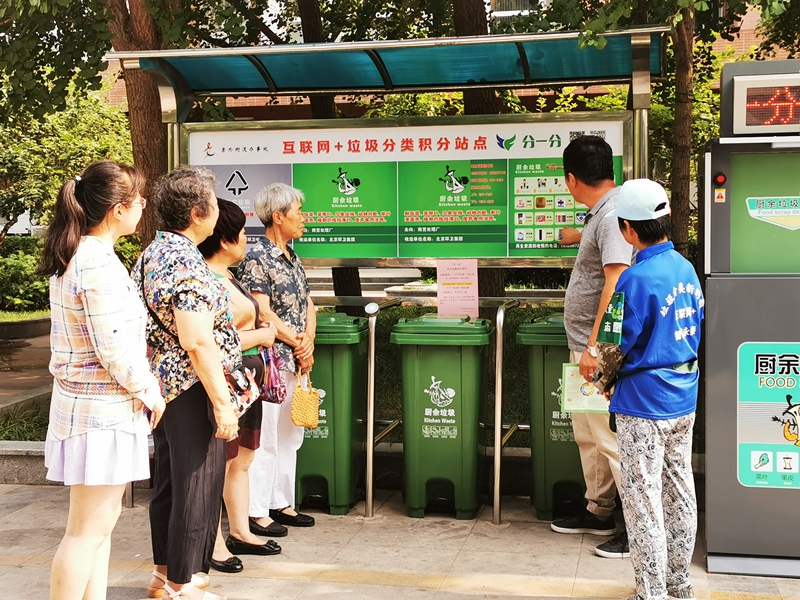
Residents learning to sort their garbage in Beijing. /CGTN Photo
Residents learning to sort their garbage in Beijing. /CGTN Photo
Shanghai is not alone in embracing mandatory trash classification. The country's capital Beijing will also enforce a city-wide compulsory domestic waste sorting system starting next May in line with the regulations passed on November 27 by the city's legislative body.
While individuals and businesses who disobey the rules will face fines up to 10,000 yuan (1,422 U.S. dollars), supermarkets and shopping malls are not allowed to offer ultra-thin/free plastic bags and food delivery platforms and hotels must also refrain from disposable supplies unless customers ask.
More and more cities across the country are following Shanghai and Beijing's footsteps in enforcing the household trash management system. According to China's Ministry of Housing and Urban-Rural Development, the garbage sorting systems shall be established in 46 pilot cities, including Guangzhou, Tianjin, Shenyang and Chengdu, by the end of 2020, and in all 300 cities at the prefecture-level and above across the country by 2025.
Garbage sorting – an overdue practice
15:56
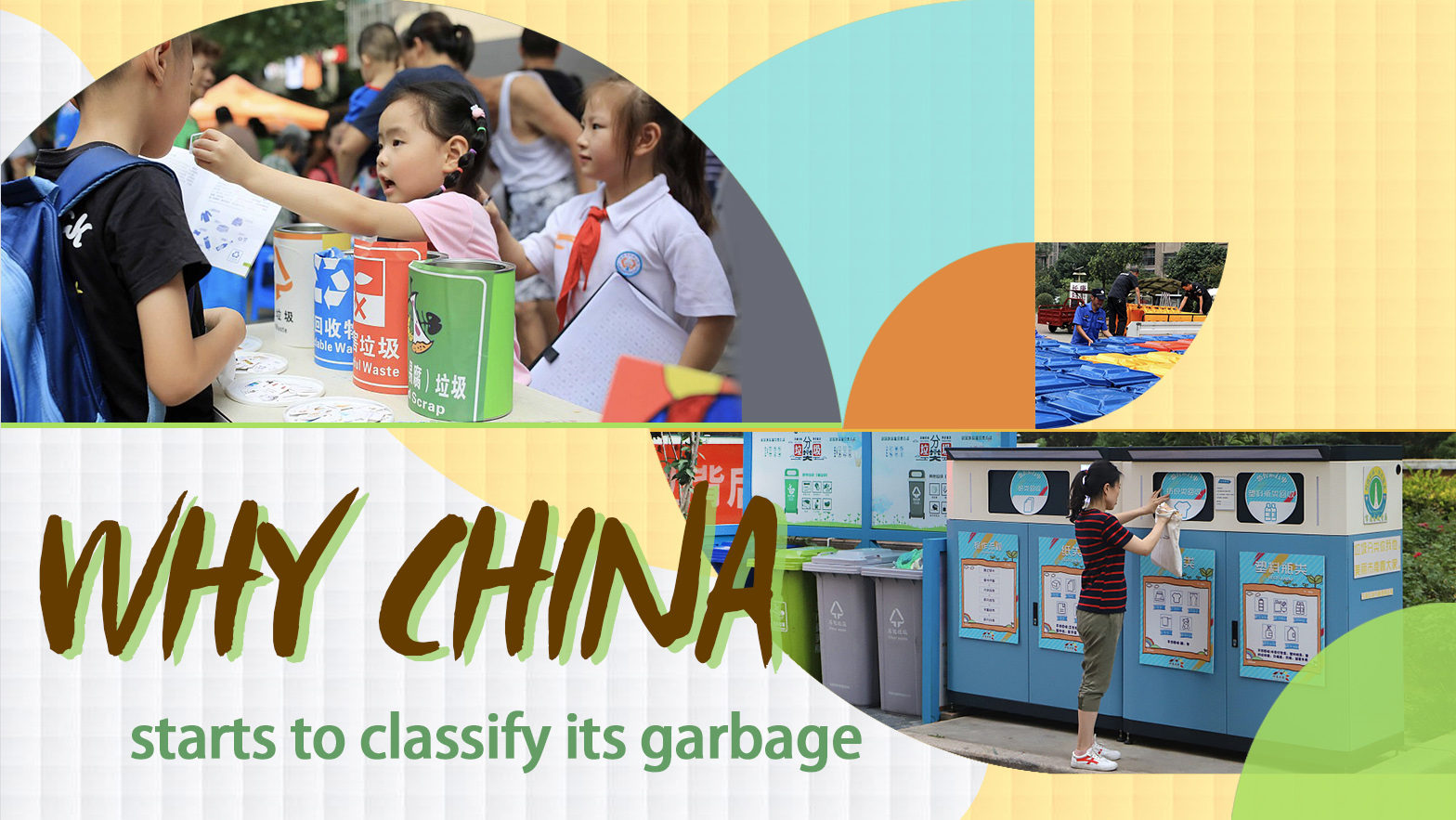
For decades, arbitrary trash dumping and rapid piling up of trash, which far exceeds landfill capacity and incinerators' disposal ability, have painted the daunting scenes of clogged up rivers, filthy boulevards and choked outskirts of glamorous urban jungles.
As the second largest producer of municipal solid waste (MSW) in the world, China has seen more than 202 million tons of household waste generated all over 202 large and medium-sized cities in 2017, an increase of 7.13 percent from the year before, according to calculations based on reports released by China's Ministry of Ecology and Environment.
The surging trash and various types of pollution, which threaten people's living environment and choke China's road to development despite its high economic growth rate, have made establishing an efficient waste sorting and recycling management system for sustainable development an increasingly difficult task.
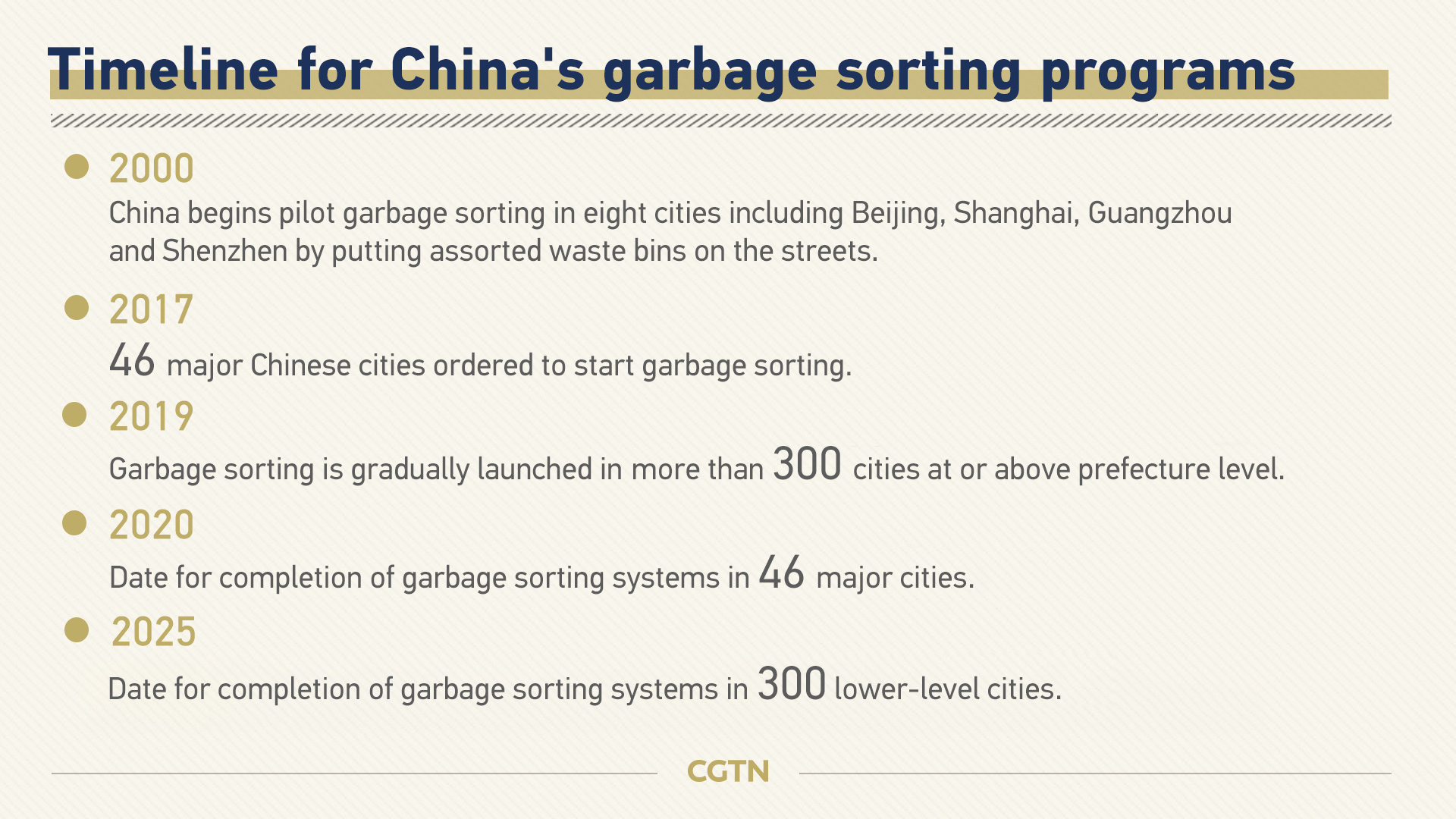
In 2000, China piloted garbage sorting in eight cities including Beijing, Shanghai, Guangzhou and Shenzhen by putting assorted waste bins on the streets. In 2017, the National Development and Reform Commission and Ministry of Housing and Urban-Rural Development issued a plan for garbage sorting, urging 46 cities to set up a basic system of laws and regulations on waste sorting by the end of 2020.
Besides the pressure of approaching the ever-increasing garbage piles, China also adopts a waste separation system to step up efficient resource utilization and build a green circular economy by collecting discarded scrap and transforming recyclables into resources.
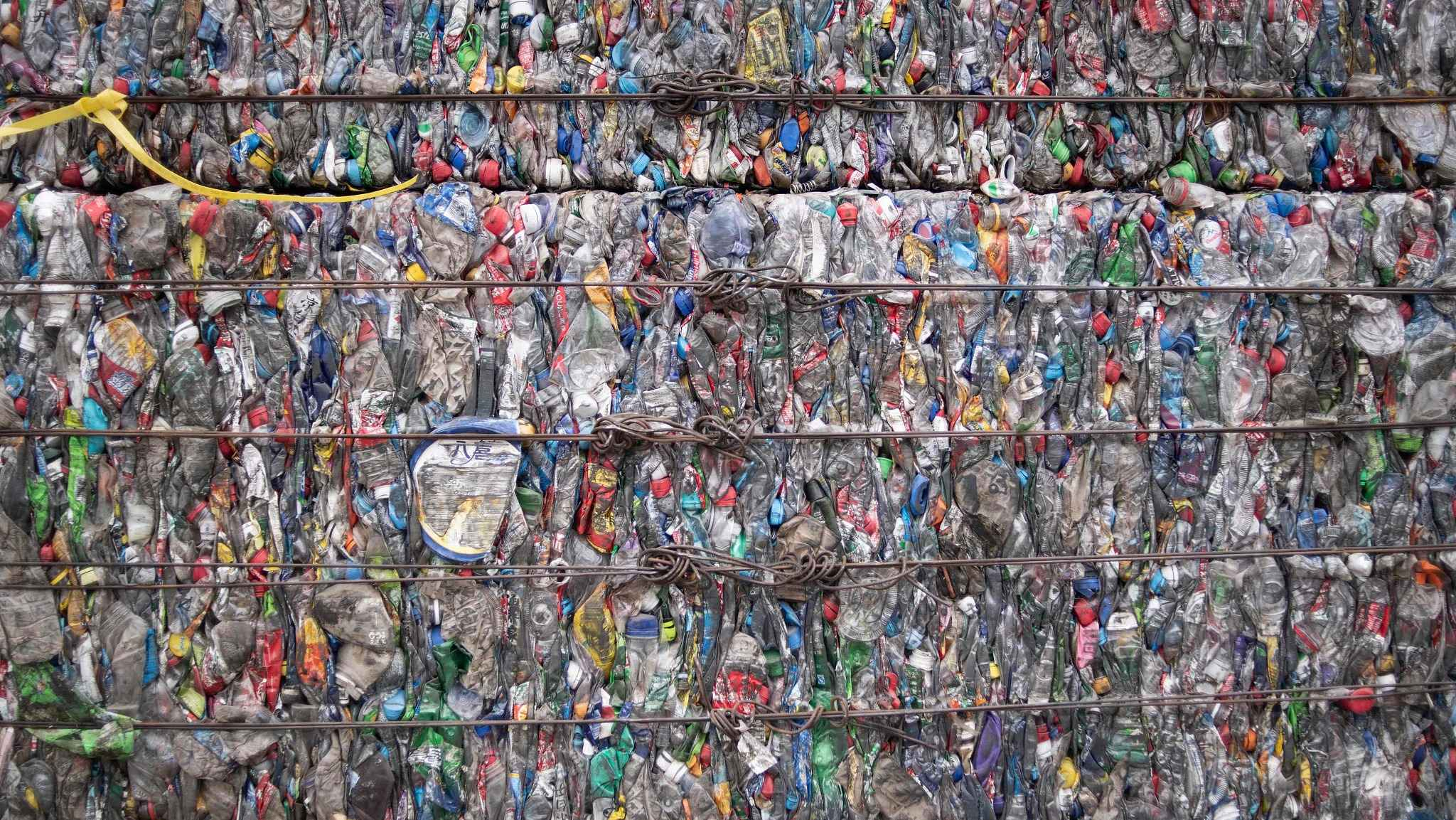
Piles of solid waste on the outskirts of Beijing. /CGTN Photo
Piles of solid waste on the outskirts of Beijing. /CGTN Photo
In 2017, China officially banned the import of 24 types of solid waste from overseas despite the fact that these imports played an important part in making up domestic shortage of resources in the past. The country is now eyeing methods to turn its own waste into wealth. And the first step is waste classification.
Garbage sorting – a long way to go
China has reached significant milestones in its waste policy as multiple cities including Shanghai and Beijing have pioneered their compulsory trash sorting schemes. However, nationwide implementation of trash sorting still has a long way to go as the country lacks infrastructure to deal with conventional trash and the level of people's awareness and participation in this endeavor need to be enhanced.
Soon after Shanghai enforced mandatory garbage sorting, the residents embarked on a learning spree to figure out trash types and methods of disposal.
Gags and memes making fun of the rules have also taken the social media platforms by storm as many find it too confusing and demanding to not mix a single item of rubbish.
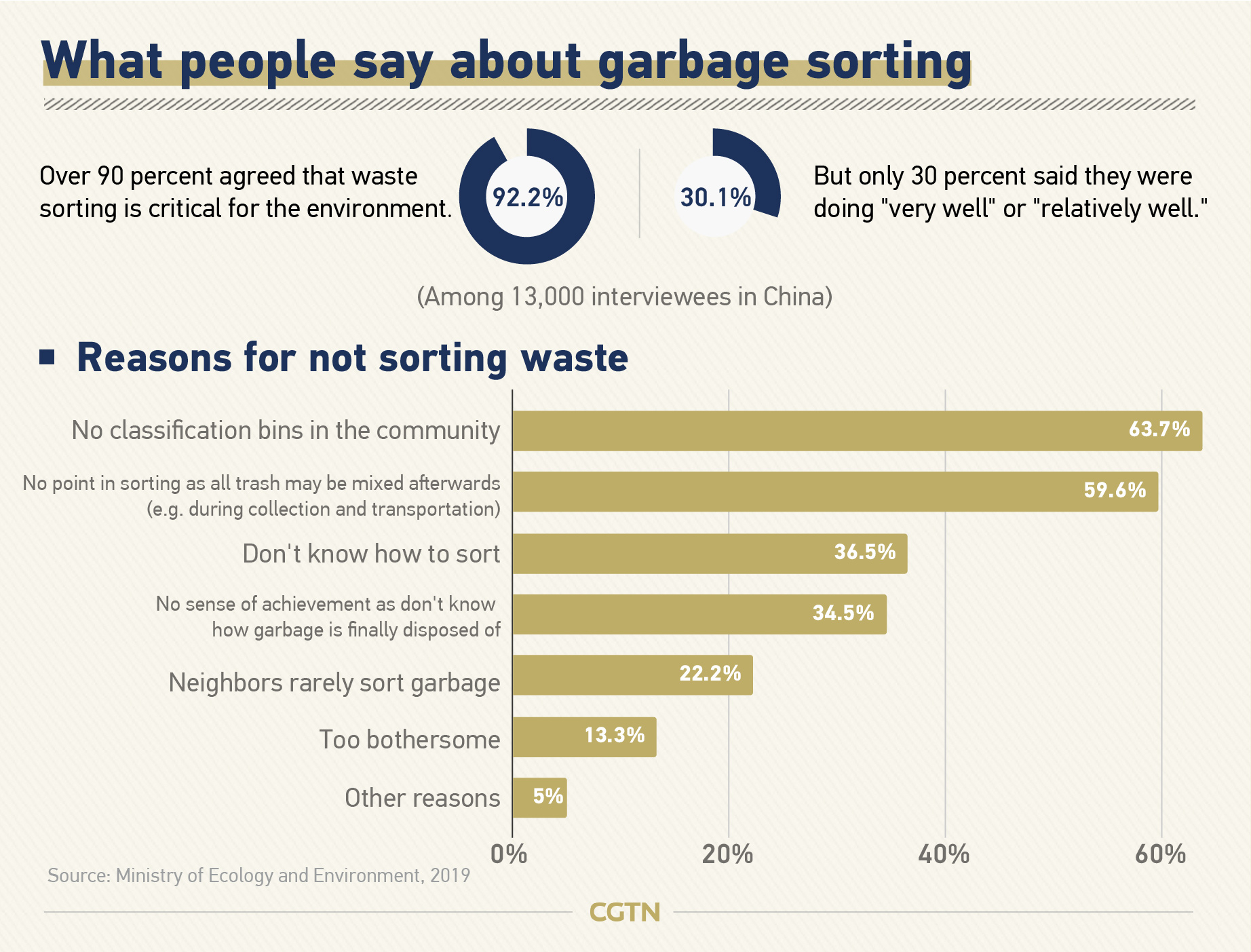
According to a survey conducted by the Policy Research Center for Environment and Economy under the Ministry of Ecology and Environment in May, only 30 percent of the 13,000 interviewees said they were doing "very well" or "relatively well" in garbage sorting.
Reasons behind not sorting waste include a lack of classification bins in the community, concerns that the sorted trash may be mixed afterwards as well as being short of know-hows.
Besides stationing volunteers near the containers to give instructions on the spot and launching educational campaigns in various forms to help residents make sense of the new recycling rules, municipal governments and internet companies across the country have employed tech-savvy measures to encourage people to take actions and get used to it.
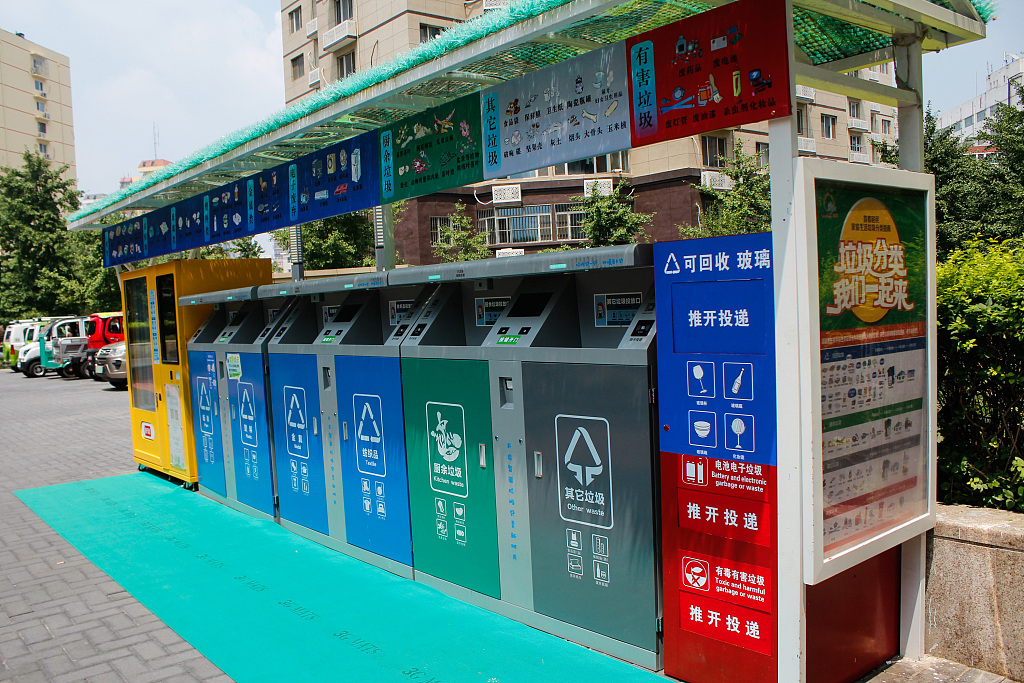
Beijing introduces smart waste sorting facilities. /VCG Photo
Beijing introduces smart waste sorting facilities. /VCG Photo
Shanghai has developed a point-rewarding scheme, allowing the residents to buy daily necessities with credits earned through proper sorting. Beijing has powered up its waste management system with facial recognition. In Guangzhou and Shenzhen, residents can seek for guidance on how to sort waste with the help of a mini-program run by China's internet giant Tencent.
The country will also invest over 21 billion yuan (3.1 billion U.S. dollars) in the construction of garbage processing facilities to meet demands, official from the Ministry of Housing and Urban-Rural Development said at a press conference in June.
(Article by Cai Mengxiao; Graphics by Hu Yiwei, Li Jingjie, Jia Jieqiong)